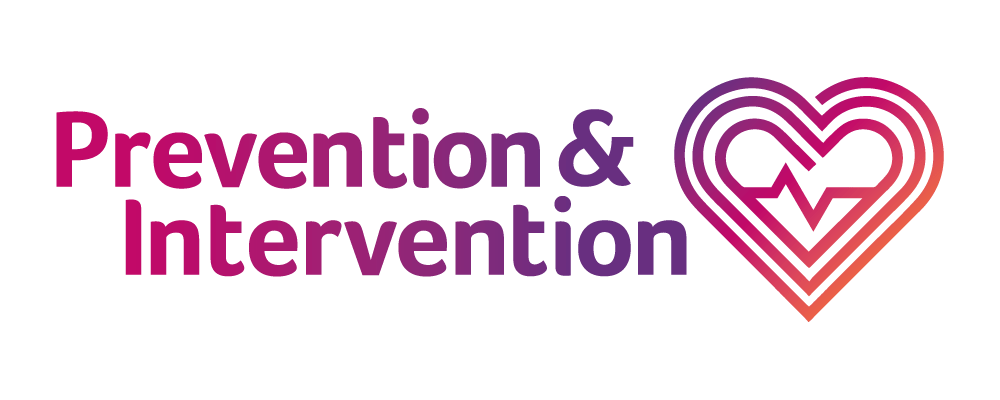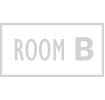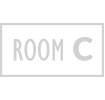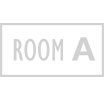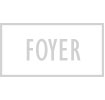© 2023-2026 Prevention & Intervention
October 10, 2025 / Day 1
12:00 – 15:00
WORKSHOP / WARSZTAT
Heart Valves in Focus – Modern Transcatheter Therapies in Everyday Clinical Pratice / Zastawki pod kontrolą – nowoczesne terapie przezcewnikowe w codziennej praktyce klinicznej
Workshop in Polish / Warsztat w j. polskim
Sponsored sessions / Sesje sponsorowane
12.00 – 12.10 Powitanie i przedstawienie celów kursu / Nicole Karam (EAPCI), Zenon Huczek (AISN)
Sesja 1: Przełom w leczeniu stenozy aortalnej – co każdy lekarz powinien wiedzieć o TAVI
Panel: Adam Witowski, Dariusz Dudek, Janusz Kochman, Radosław Parma, Maciej Dąbrowski, Łukasz Lewicki, Michał Hawranek, Zenon Huczek
12.10 – 12.25 TAVI – od kwalifikacji, poprzez zabieg, do wypisu – Bartosz Rymuza
12.25 – 12.30 Pacjent z bioprotezą aortalną – jak postępować, czego się spodziewać? – Radosław Parma
12:30 – 12:50 Dyskusja
Sesja 2: Przezcewnikowe leczenie niedomykalności mitralnej – szansa dla chorych wysokiego ryzyka
Panel: Wojciech Wojakowski, Piotr Scisło, Radosław Targoński, Adam Rdzanek, Jerzy Pręgowski
12.50 – 13.00 Jak rozpoznać MR (typowe objawy, badanie fizykalne, rola ECHO) i kiedy skierować do oceny pod kątem terapii przezcewnikowej (M-TEER/TMVR) – Piotr Scisło
13.00 – 13.10 M-TEER – od kwalifikacji, poprzez zabieg, do wypisu. Co jest ważne w opiece ambulatoryjnej? – Wojciech Wojakowski
13.10 – 13:20 Implantacja bioprotez u chorych ze zdegenerowaną zastawką chirurgiczną i natywną MR (TMVR) – Zenon Huczek
13:20 – 13:35 Dyskusja
Sesja 3: Nowe możliwości w terapii niedomykalności trójdzielnej – koniec zapomnianej zastawki
Panel: Marek Grygier, Adam Rdzanek, Piotr Scisło, Marcin Fijałkowski, Jerzy Pręgowski
13.35 – 13.45 Obraz istotnej niedomykalności trójdzielnej w badaniu echokardiograficznym – kiedy i kogo skierować do T-TEER i TTVR – Marcin Fijałkowski
13.45 – 13.55 Kto jest optymalnym kandydatem do T-TEER? – Marek Grygier
13.55 – 14.05 Nowatorskie terapie – heterotopowe i ortotopowe wszczepienie bioprotezy trójdzielnej (TTVR) – Adam Rdzanek
14:05 – 14:15 Dyskusja
14:15 – 14:20 Przerwa
Sesja 4: Ćwiczenia na symulatorach
14.20 – 15.00
Symulatory TAVI (Medtronic, Edwards, Abbott)
Symulatory M-TEER (Edwards)
Symulatory T-TEER/TTVR (Edwards)
12:00 – 16:30
WORKSHOP / WARSZTAT
Modern PCI Strategies in Clinical Practice – From Imaging to Optimization of Coronary Procedures: An Interactive Workshop / Nowoczesne strategie PCI w praktyce klinicznej – od obrazowania po optymalizację zabiegów wieńcowych – warsztat interaktywny
Workshop in Polish / Warsztat w j. polskim
Sponsored sessions / Sesje sponsorowane
Wprowadzenie i cele warsztatu
Wykłady eksperckie
Prowadzenie: Marta Kałużna-Oleksy, Michał Hawranek
12:05 Bioadaptor – nowe możliwości i strategie implantacji – Michał Hawranek
12:17 Lithix – technologia i pierwsze doświadczenia kliniczne – Marta Kałużna-Oleksy
12:29 Ocena vessel motion i remodeling w obrazowaniu – Łukasz Pyka
Sesja case-based
Prowadzenie: Łukasz Kołtowski, Grzegorz Sobieszek, Marek Koziński
12:45 Lithix Case 1: zwapnienia koncentryczne – Łukasz Kołtowski
13:00 Lithix Case 2: zwapnienia długie/rozsiane – rola Lithix w leczeniu wielu zmian – Grzegorz Sobieszek
13:15 Lithix Case 3: zwapnienia w pniu LTW – zastosowanie Lithix – Marek Koziński
13:30 Bioadaptor / IVUS-guided PCI – ciekawe przypadki – Michał Hawranek
13:45 IVUS w codziennej praktyce – sizing, plaque morphology, optimization – Michał Wróbel
14:00 AI w optymalizacji stentowania (Boston AI tools) – Łukasz Lewicki
Hands-on IVUS trening (3 stacje, rotacje po 40 min)
Prowadzenie: Michał Hawranek, Łukasz Pyka, Michał Wróbel
Stacja 1: Ocena zwapnień (arc, depth, calcium scoring)
Stacja 2: Optymalizacja implantacji stentu (stent expansion, malapposition, edge dissection)
Stacja 3: Ocena pozabiegowa (remodeling, motion, edge issues)
Podsumowanie i panel Q&A
15:00 – 16:00
Coffee break / Przerwa kawowa
16:00 – 18:00
WORKSHOP
Creating an Inclusive Environment for LGBTQIA+ Patients and Populations: A Culturally Competent Approach to Preventative Care
Chair / Prowadzenie: Anthony Dissen, Michał Czapla
18:00 – 18:30
Coffee break / Przerwa kawowa
18:30 – 19:30
Patient at the Centre: A Worldwide Perspective on Patient Empowerment and Partnership in Cardiovascular Care / Pacjent w centrum: globalna perspektywa wzmocnienia roli pacjenta i partnerstwa w opiece kardiologicznej
Disscutants: Agnieszka Wołczenko, Marta Markiewicz, Aleksandra Tomaszek, Katarzyna Jessa, Marcin Balicki, Birgit Beger, Karolina Vasku
Session Objective:
This session will showcase the voices and experiences of patient advocacy organizations from diverse countries, offering a global perspective on the role of the patient as an active partner in cardiovascular prevention and intervention.
Participants will explore:
• How different countries and cultures define and implement patient-centered care / Jak różne kraje i kultury definiują oraz wdrażają opiekę zorientowaną na pacjenta
• Innovative models of collaboration between patients, clinicians, and policymakers and how does it look in Poland / Innowacyjne modele współpracy między pacjentami, klinicystami i decydentami oraz jak wygląda to w Polsce
• The evolving role of patient advocacy in shaping national and international cardiovascular strategies / Ewolucja roli rzecznictwa pacjentów w kształtowaniu krajowych i międzynarodowych strategii kardiologicznych
• Barriers to meaningful patient involvement – and how to overcome them / Bariery w zaangażowaniu pacjentów w self-care – i jak je przezwyciężać
• International cooperation – what can we learn from each other? / Współpraca międzynarodowa – czego możemy się od siebie nauczyć?
By bringing together global insights, this session aims to strengthen the role of the patient as an essential stakeholder in the cardiovascular ecosystem — from education and early prevention to intervention and long-term follow-up.
October 11, 2025 / Day 2
12:30 – 14:00
WORKSHOP
Maximising Success in Publishing Research Papers
Chair: Professor Mark Hayter
Professor Hayter will share his decades of experience as an editor, Editor-in-Chief, author and reviewer to discuss how to maximise success in academic writing and publishing research. This presentation will cover the ‘7 golden rules of writing’ and the ’10 top reasons for manuscript rejection’ to explore how we can develop our academic writing and improve the chances of success. It will also explore the way journals and editors work, how they process reviews and the influence of citations and impact factor in their assessment of new manuscripts.
October 12, 2025 / Day 3
10:00 – 12:00
ABSTRACT SESSION
Chair: Michał Czapla, Grzegorz Kubielas, Jakub Morze, Bartosz Uchmanowicz, Izabella Uchmanowicz
- Intracoronary adrenaline for the treatment of refractory no-reflow phenomenon during percutaneous coronary intervention: Insights from the MIRACLE-NR registry – Piotr Desperak
- Lp(a) levels in patients with a confirmed diagnosis of heterozygous Familial Hypercholesterolemia – Julia Warzywoda
- Mediterranean Diet Adherence and Body Composition in Post-Myocardial Infarction Patients: Preliminary Findings from the CARE-ME Study – Michał Mazur
- The relationship between gestational diabetes mellitus and the incidence of cardiovascular disease during the extended postnatal period – Marta Ryś
- Functional capacity and exercise tolerance in nursing home residents with treated arterial hypertension and coronary heart disease – Małgorzata Fortuna
- Impact of the Polish National Preventive Program “prophylaxis 40 plus” on cardiovascular polypharmacy reduction and therapeutic optimization in multimorbid middle-aged adults – Jacek Gonos
- Association between Frailty and Functional Independence in Older Patients with Heart Failure – Jagoda Janiszewska
- Ethnic differences in aortic and femoral artery measurements in TAVI patients – DIVER registry – Anna Olasińska-Wiśniewska
- Prevalence of depression symptoms and social anxiety in hospitalized heart failure patients – cross-sectional study – Nela Wiśniewska
- ChatGPT in cardiovascular medicine: revolution, hype, or helper? – Sara Janczak
- Treatment of heart failure in the Polish population based on the EVOLUTION-HF study – is there therapeutic inertia? – Przemysław Leszek
- Coverage of psychological care and burden of mental health disorders in HF patients – Filip Sawczak
- Relaxation methods as an effective non-pharmacological intervention to reduce blood pressure during pregnancy and the postpartum period – Kamila Drobina
- Effective psychotherapeutic intervention in a patient with Barlow syndrome, hypertension and panic attacks after ascending aorta surgery – Anna Prokopowicz
- Assessment of patient satisfaction with participation in a vascular disease prevention program at sp zoz kamieńsk – Ewa Molka
- Evaluation of the effectiveness of the cardiovascular disease prevention program in Kobiele Wielkie, Łódź voivodeship – Ewa Molka
10:25 – 11:55
WORKSHOP
Case challenge with Shockwave IVL
Chair: Marta Kałużna-Oleksy, Michał Hawranek
Shockwave IVL: Expanding horizons in the treatment of coronary calcification (15 min.) – Michał Hawranek
Case 1 (10 min.) – Anna Mikołowicz-Mosiądz
Case 2 (10 min.) – Łukasz Pyka
Case 3 (10 min.) – Anastasiya Skoromna
Case 4 (10 min.) – Michał Wróbel
Case 5 (10 min.) – Anna Draus
IVL in registries (15 min.) – Wojciech Skorupski
How to deal with Shockwave-IVL in everyday practice – session summary (10 min.) – Marta Kałużna-Oleksy
